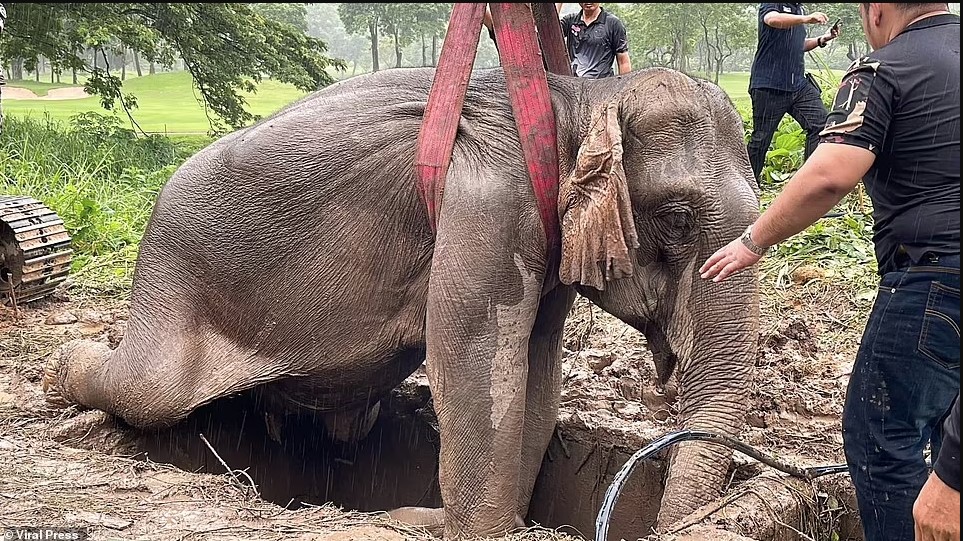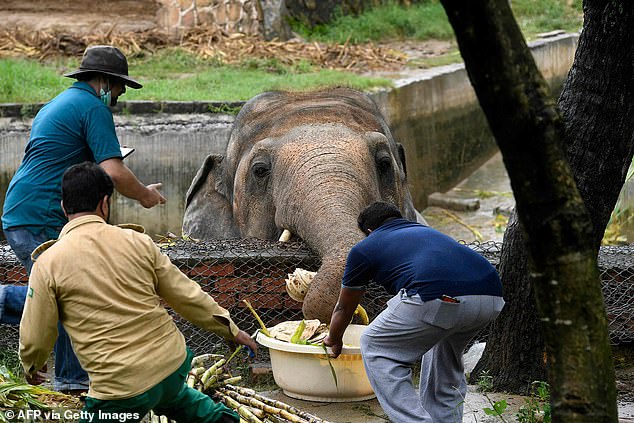The Mandingoa Nitidula (or commonly known as the Green Backed Twinspot) is a small type of bird with a chunky build. It displays a nice combination of red, yellow, green colors with cute little white spots around the black belly.
These birds are incredibly attractive and very pleasing to the eyes. The male and female Green Backed Twinspot looks very much the same.
The only difference that you can vividly see is the patches on their eyes. Male have red patches, while the female have yellow.
Younger birds and juvenile birds lacks the real color of their breed, which may show once they reach adulthood. The Green Twinspot, as some would call it is a native to the sub-Saharan in Africa.
They live in forests where there are dense tangles and lands with seeding plants. You may also see them in moist forests and other low lands and they prefer the forest rather than the savanna area, which is very common in Africa.
To know more about the Green Backed Twinspot, continue reading the rest of the post and be amazed by these chunky creatures. They are one of the cutest little creatures of their specie.
Enjoy reading and have a nice day everyone!
Presenting the Green Backed Twinspot
Small, chunky, and super cute are all words that describe the Green Backed Twinspot.
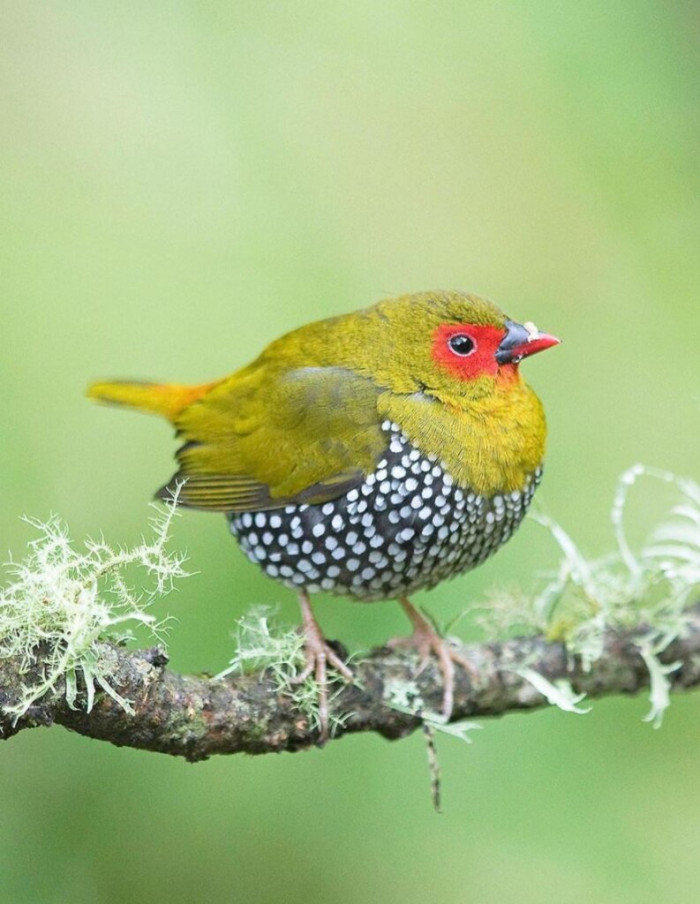
Green Backed Twinspot or also known as the Green Twinspot
Here’s a picture of a female Green Backed Twinspot that features a dark green overall plumage with yellow eye patches and white twin spots across her black belly.
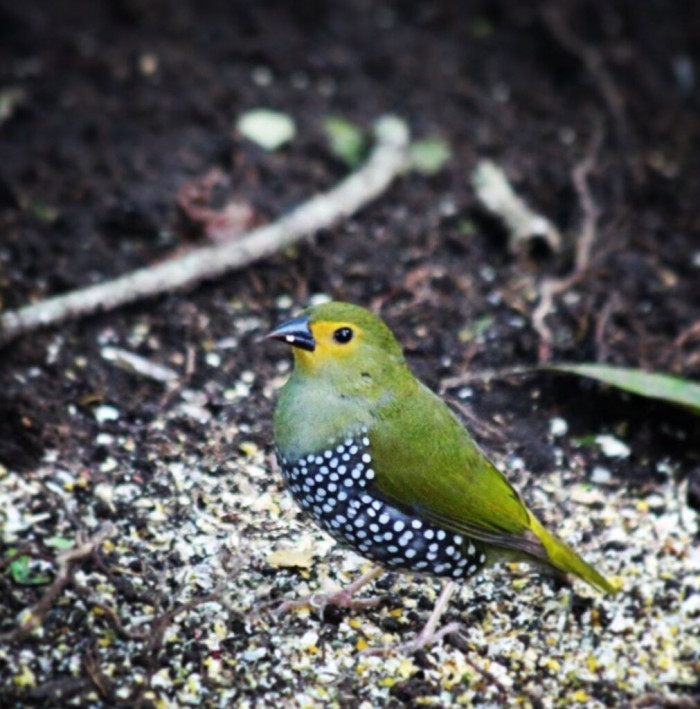
Juvenille Twinspot
Here’s how a juvenile Green Backed Twinspot looks like. It lacks the colors that the adult twinspots have.
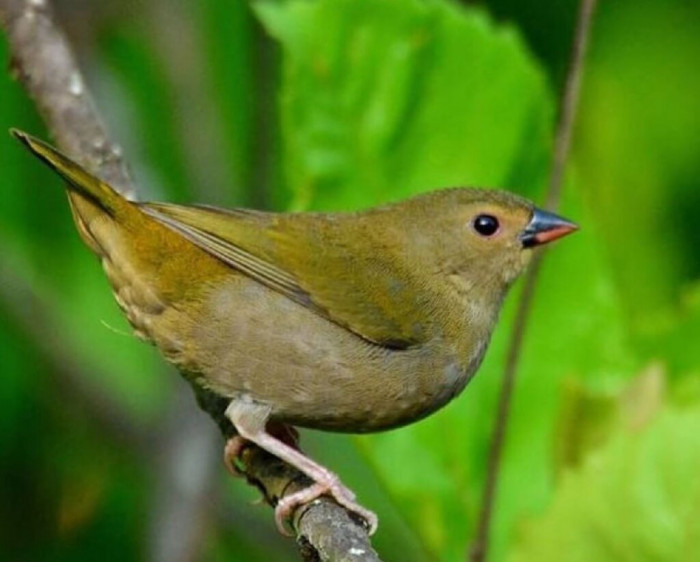
Where To Find Them?
The Green Backed Twinspot are mostly found in moist forests and areas where there is a tropical climate. It loves the grass lands, shrubs, and other low lands.
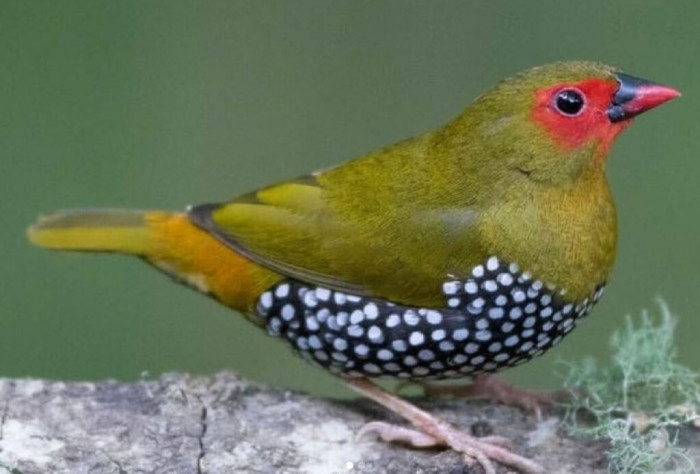
Diet
They love eating grass seeds such as ribbon bristle, basket, and forest wood. But from time to time, they also like taking small insects and nettles.
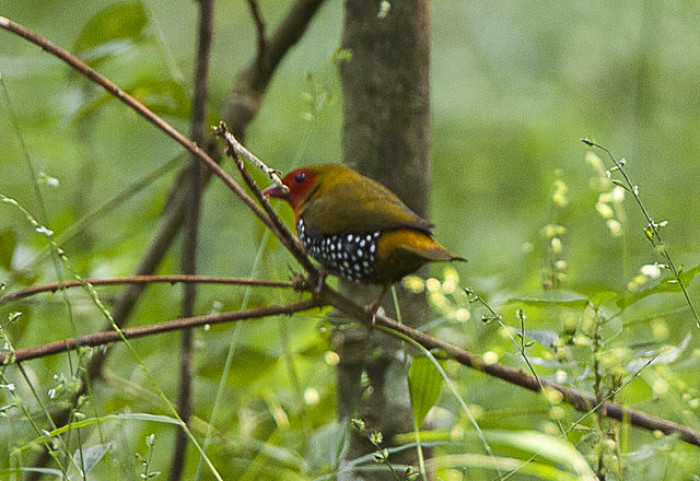
Breeding Season
The Green Backed Twinspot breeds between the months of December to April. They are considered monogamous birds though, so they can mate almost anytime during the year.
Nests are built by both male and the female twinspots. The nice thing about the nest is its made of several layers to make sure that the eggs are well protected inside.
The outer layer are made of grass stems, twigs, skeleton leaves, and lichen. The inner lining is made of feathers and soft grass.
Both sexes work together in feeding their offspring.
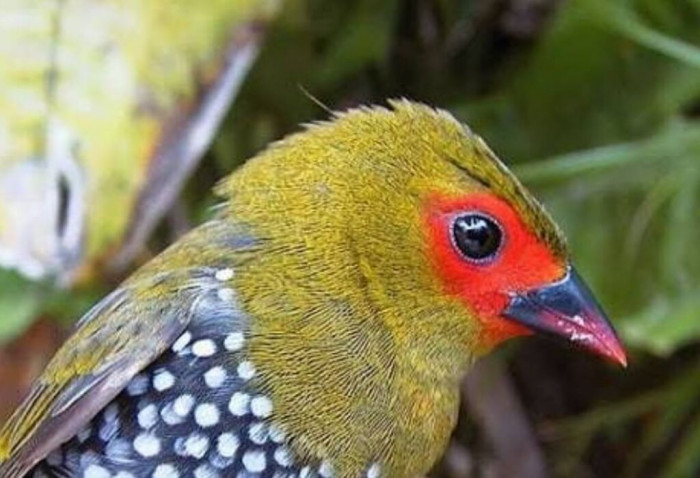
Population
The Green Backed Twinspots are not endangered. However, experts are not able to quantify its number due to the various locations of these birds that are hard to observe.
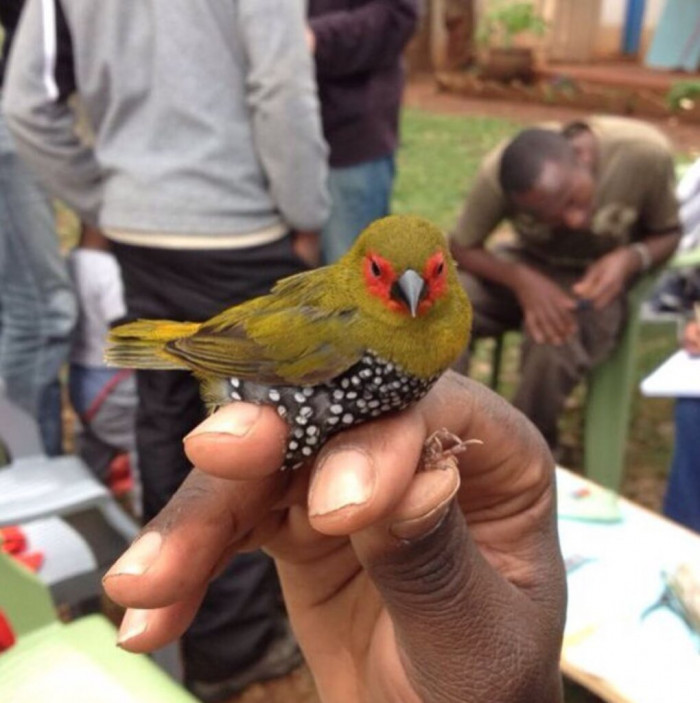
Watch Them Here!
If you want to see the Green Backed Twinspot live in action, watch this video and be amazed by these small but terribly cute creatures.
Source: https://www.pupperish.com




